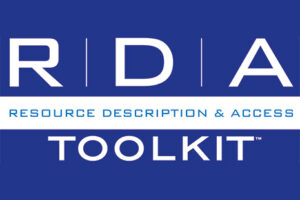What is RDA?
RDA | Resource Description and Access is an international standard for the creation of library and cultural heritage metadata for use in the ever-expanding digital environment.
RDA is designed to address a wide range of data collection and access needs.


